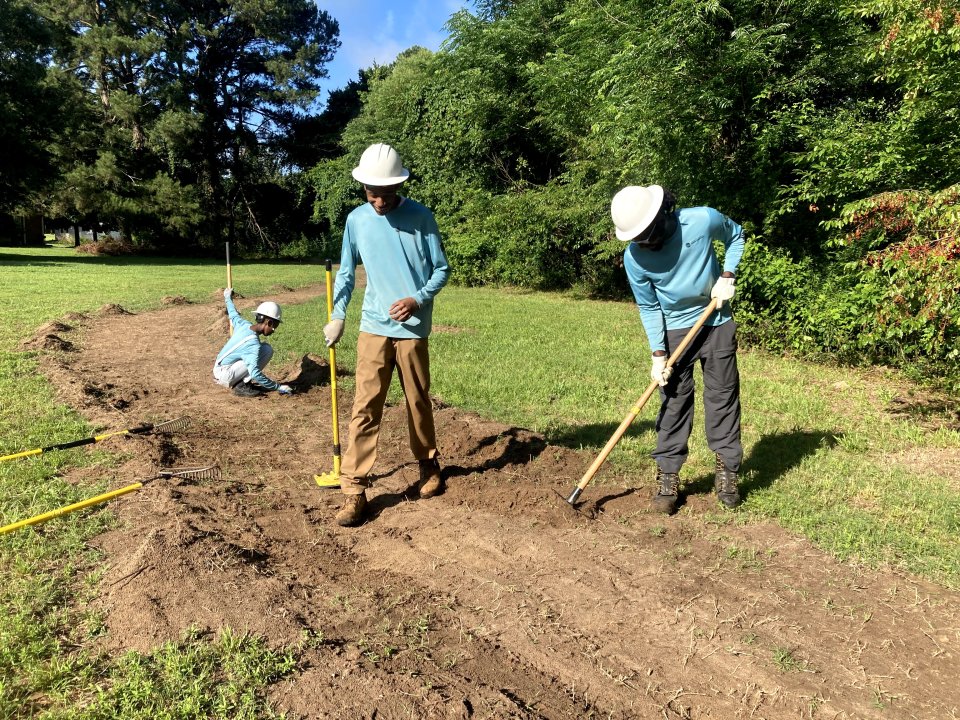Developing Storm Resilience and Sustainable Livelihoods in Princeville, North Carolina
How a community used nature-based solutions to mitigate flood risk while creating economic opportunity
Why Climate Resilience Is Important to Princeville
The historically Black town of Princeville, North Carolina, has been repeatedly battered by hurricanes, floods, intense storms, and other precipitation events. As an underserved community, the majority of the town’s residents have scarce means to prepare for or recover from extreme weather events, which exacerbates disruption to the community, economy, and workforce. As flooding becomes more frequent and severe, it is costly for taxpayers to rebuild after repeated incidents. To reduce flood risk, the town of Princeville partnered to install nature-based solutions.
Partnerships and Project Goals
As part of an ongoing effort to enhance the community’s resilience, the town of Princeville partnered with the Conservation Trust for North Carolina and the North Carolina State University Coastal Dynamics Design Lab Conservation Corps to enhance resilience to flood events.
Leveraging $200,000 awarded from the EJ4Climate program, Princeville and its partners successfully installed a variety of nature-based resilience measures, including:
- Installing 6,000 square feet of stormwater bioretention cells, also known as rain gardens, on two FEMA buyout parcels. This increases the parcels’ holding capacity by 27,740 gallons of water per rain event, allowing for slower drainage thus reducing flooding.
-

Seeding resilience in Princeville, North Carolina. (Source: Conservation Trust for North Carolina) - Planting 50 trees and thousands of native and ecologically adapted ornamental plants to create 100 square feet of pollinator habitat, provide 250,000 gallons of water absorption, and 2,900 pounds of carbon storage per year.>
- Launching a 24-bed model community garden on vacant lots to energize 100 community members around healthier life options and promote local low-carbon agriculture while capturing rainwater.
The tree plantings along Main Street will also help absorb excess stormwater, sequester carbon emissions, and provide shade and heat relief for pedestrians. Vacant, town-owned properties are being converted to wetlands managed by the local government that create green space that also captures standing water after flood events.
Adaptation in Action
Ongoing phases of this work entail planting additional trees and converting more vacant lands to natural stormwater infrastructure such as restored wetlands and urban agriculture. The town was able to provide its partner – the Conservation Trust for North Carolina – with an additional list of physical locations where standing water and stormwater issues continue to impact residents. This will allow the community and CTNC to design their interventions at locations that can have the greatest impact on residents’ everyday quality of life by further reducing the flooding they are still experiencing. This project serves as a model for land trust community partnerships to implement in other places where communities are disproportionately experiencing the impacts of more intense storms and flooding.
